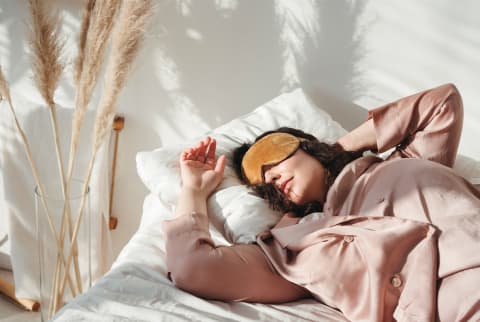Advertisement
An MD On One Downside Of Melatonin — And What To Take For Sleep Instead


Most of us could probably use more (if not better) sleep, no? There's certainly no shortage of products designed to get us there. In pursuit of a good night's rest, many turn to sleep aids like melatonin. But according to functional medicine doctor Frank Lipman, M.D., it's not always the best one. Here's why.
Why melatonin is best in small doses
As Lipman explained on an episode of the mbg podcast, he's not against melatonin—but he does think it has a pretty specific use case: It's best for helping with sleep rhythm.
"Melatonin is your main sleep hormone, and cortisol is your main daytime hormone," Lipman notes. So, he adds, melatonin can be helpful if you're experiencing issues with the rhythm of your sleep, such as jet lag from traveling. "If you want to get back into rhythm, melatonin is a good way to do so," he adds.
But if your circadian rhythm isn't the issue, taking melatonin likely won't be the most effective option. In fact, he says, "Melatonin is a hormone. It can affect all the other hormones. And taking a lot of melatonin—a lot of people take 3 to 5 milligrams to sleep—over time is going to affect your other hormones and suppress your body's own ability to make melatonin."
Why he prefers sleep support+
For a supplement that promotes sleep and is safe to use nightly, Lipman says he's a fan of mindbodygreen's sleep support+ formula.
He appreciates that in addition to magnesium bisglycinate (a highly absorbable form of magnesium that promotes a steady state of relaxation), sleep support+ contains calming nutrients like pharmaGABA and jujube.* When paired, these ingredients make for a well-rounded supplement that is gentle enough to be taken nightly but powerful enough to actually work.* (These five-star reviews will give you a sense of its chops.)
"That can actually help with sleep way better than melatonin," Lipman says. Of course, everyone is different and will have their own way of achieving quality sleep—but if melatonin hasn't been doing the trick for you, sleep support+ is another tool to try.
